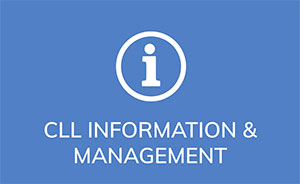The FDA has placed a partial hold on clinical trials using umbralisib plus ublituximab, often abbreviated to U2, in CLL and other lymphomas due to a possible increased mortality risk.
The combination of umbralisib plus ublituximab has promising activity in chronic lymphocytic leukemia/small lymphocytic lymphoma (CLL / SLL) as shown in this ASH 2021 abstract: Umbralisib Plus Ublituximab (U2) Is Superior to Obinutuzumab Plus Chlorambucil (O+Chl) in Patients with Treatment Naïve (TN) and Relapsed/Refractory (R/R) Chronic Lymphocytic Leukemia (CLL): Results from the Phase 3 Unity-CLL Study.
That study showed that U2 significantly prolonged progression-free survival (PFS) compared to Obinutuzumab plus Chlorambucil (O+Chl) (median 31.9 months vs 17.9 months), but PFS is not the whole story.
In the way of background, umbralisib is an oral PI3k inhibitor that blocks the B cell receptor (BCR) through a different pathway than the oral BTK inhibitors such as ibrutinib and acalabrutinib. Blocking BCR has proven very effective in controlling CLL / SLL. The family of PI3k inhibitors includes two medications already approved for CLL, duvelisib, and idelalisib. They have never been a very popular therapy in CLL / SLL due to their toxicity. They are not approved as frontline treatment due to the risk of severe and potentially fatal side effects in treatment-naive patients. However, their lack of popularity was never due to a lack of efficacy. They are very effective drugs, but they have challenging and potentially dangerous side effects. We recently reported that idelalisib withdrew its application for use in SLL and follicular lymphoma, mainly because no one was enrolling in the trials needed to obtain FDA approval.
The hope has been that umbralisib, with its very different structure than duvelisib and idelalisib, would cause fewer problems and some early data had been encouraging. That hope will be carefully examined now as more trial results are collected and studied.
Ublituximab, the other “U” in U2, is a monoclonal antibody (mAb) that targets the surface marker CD20 found on all B cells, including CLL cells and normal cells. Rituximab and obinutuzumab (Gazyva) are similar mAbs. Therefore, it would not be expected to have different toxicities than similar mAbs. Its extended use may make CLL patients more susceptible to COVID-19 during the pandemic and to other infections in general.
What prompted the hold on the trials was that the overall survival (OS) hazard ratio (HR) was 1.23 and when leaving out the COVID-19 related deaths was 1.04. Any OS hazard ratio over 1.00 implies that the investigational therapy, U2, may be causing harm. The risk of death is higher, in this case almost one-quarter higher, in the experimental drug arm, and that’s not good.
What is the role of umbralisib, the ublituximab, the U2 combo, the trial design or the duration of therapy in determining these survival curves is an unanswered question.
Hence the trials are now closed to all new patients; however, current patients who are deriving clinical benefit may stay on study drugs and must reconsent to stay on trial when the IRB updated consent is available.
The HR for U2 may improve over time as potent therapies often have higher toxicity when looked at early in treatment but can still result in better long-term survival. One extreme example is a bone marrow or hematopoietic stem cell transplant, where mortality can be quite high in the first few months post-transplant. Still, there may be a survival advantage for the right patients over the long term. Whether this proves to be the case for U2 is not yet known.
This finding is also prompting the FDA to investigates umbralisib due to possible increased risk of death in lymphomas where the drug is already approved.
Here is one of the many articles online covering the news of the FDA Placing Partial Clinical Hold on Studies Featuring Umbralisib and Ublituximab in CLL and Non-Hodgkin Lymphoma.
There should be an upcoming PDUFA or Prescription Drug User Fee Act date, and then we should have a clearer picture of when and if U2 can be used to treat CLL / SLL.
PI3K inhibitors, including umbralisib, are potent drugs for managing CLL. New molecules and novel dosing schedules to minimize the side effects are being studied. Anti-CD20 monoclonal antibodies such as rituximab, obinutuzumab, and now potentially ublituximab when added to other treatments, can improve outcomes for lymphoma patients including those with CLL / SLL, but they are all immunosuppressive, maybe not such a good thing during a pandemic.
Let’s hope we find more options to safely use these powerful drugs to help control disease progression.
I suspect we will have answers soon and we will share them here.
Stay strong. We are all in this together.
Brian Koffman MDCM (retired) MS Ed (he, him, his)
Co-Founder, Executive VP, and Chief Medical Officer
CLL Society, Inc.

















